
NHPRC News
December 2024
Inside the Commission
National Archives Awards $2.4 Million for Historical Records
At its November 2024 meeting, the National Archives approved $2,434,000 in awards for historical records projects in 21 states, American Samoa, and the District of Columbia. The National Archives grants program is carried out with the advice and recommendations of the National Historical Publications and Records Commission. A complete list of grants is available online.
In partnership with state historical records advisory boards, the National Archives will fund 16 states to carry out programs that assist smaller archives, provide workshops and educational tools, and provide statewide archival services. Two Major Initiative grants totaling will go to: Washington College in Maryland to work with the Chesapeake Heartland Digital Archive to document Black heritage on the Eastern Shore, and the Franco American Collections Consortium in Maine, which will document the French-Canadian and Acadian diaspora from 89 collections held at 13 repositories.
Seven grants will be awarded to Archives Collaboratives. Planning grants to the Highlander Research and Education Center in Tennessee to partner on a Southern memory workers’ collaborative and Dance/USA to develop archival resources for three dance companies which represent traditional, cultural, and contemporary dance forms. Implementation grants will go to the New York Folklore Society and partners across the state; the Association of Moving Image Archivists to work with four cultural organizations on digital readiness; the Blacklidge Community Collective in Tucson, Arizona to form an archives commune; Urban Archives to support a location-based digital platform and collection management system; and Efforts of Grace, Inc. to work with the Alliance for Cultural Equity and over a dozen small museums and community-based archives in New Orleans.
Our Publishing Historical Records program will support six projects that document major historical figures and important eras and social movements, including the Correspondence of Zachary Taylor and Millard Fillmore; the Civil War Governors of Kentucky Digital Documentary Edition; a digital edition of Los Angeles Issei Poetry; the “Willie Jumper Stories” as part of the Digital Archive for Indigenous Language Persistence; Slavery Law & Power: Debating Justice & Democracy in Early America and the British Empire; and Kinship and Longing: Keywords for Black Louisiana, a digital edition documenting 18th century French and Spanish Louisiana.
Caryn Wojcik Named to the Commission
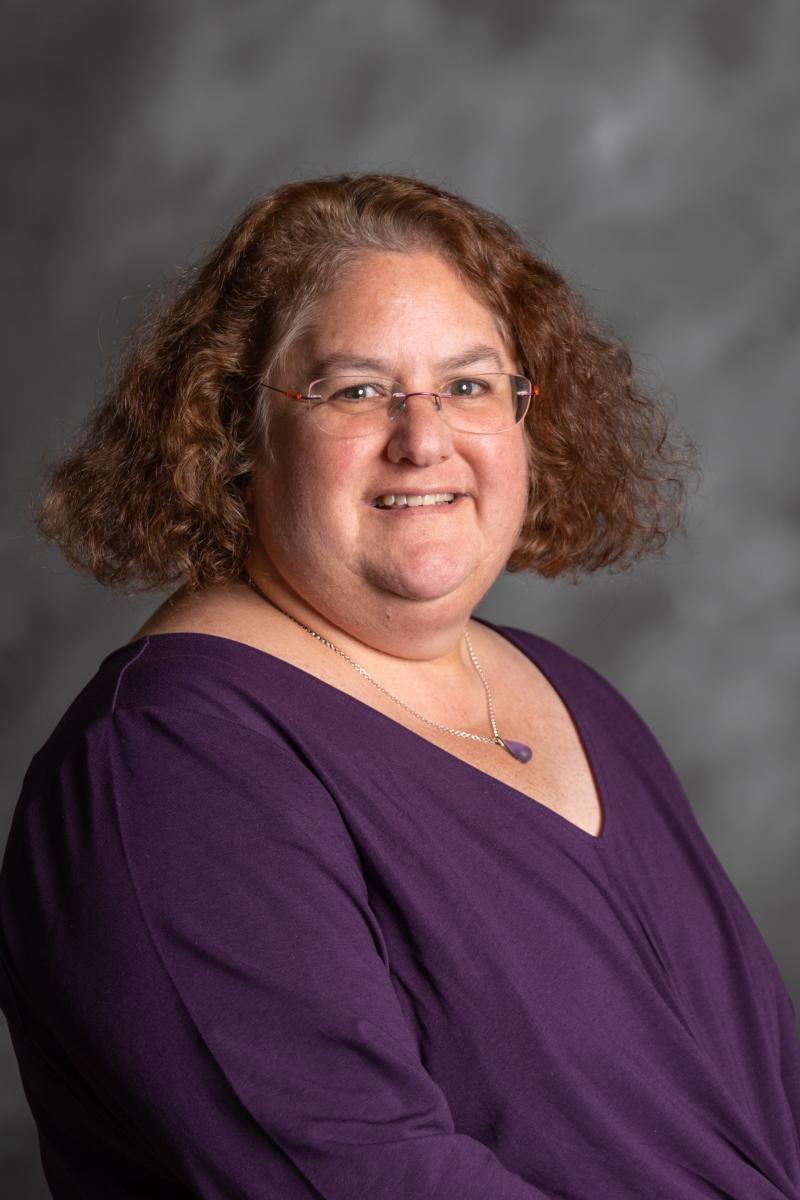 We are pleased to welcome Caryn Wojcik as representative from the National Association of Government Archives and Records Administrators (NAGARA) to the NHPRC. She replaces Kathleen Williams. As Senior Records Analyst for the State of Michigan Records Management Services, she is responsible for developing Retention and Disposal Schedules for public records, information governance initiatives, and training government employees about best practices for records management.
We are pleased to welcome Caryn Wojcik as representative from the National Association of Government Archives and Records Administrators (NAGARA) to the NHPRC. She replaces Kathleen Williams. As Senior Records Analyst for the State of Michigan Records Management Services, she is responsible for developing Retention and Disposal Schedules for public records, information governance initiatives, and training government employees about best practices for records management.
Ms. Wojcik received both her bachelor’s degree in history (1993) and her master’s degree in information and library science (1995) from the University of Michigan, Ann Arbor and began working for the state government the following year. She is a Certified Archivist - Emeritus.
Over the course of her career, Ms. Wojcik participated in many grant projects funded by the NHPRC, including the SDSC Archivists’ Workbench project, the Michigan RMA Pilot Project, the PERM Project, the PAT Project and the DCAPE Project. She wrote and taught the SAA DAS course, “Appraisal of Electronic Records.” Between 2003-2012 she was Secretary to the Board of Directors of NAGARA and served as President during 2020-2021.
Kathryn Tomasek Named to Commission
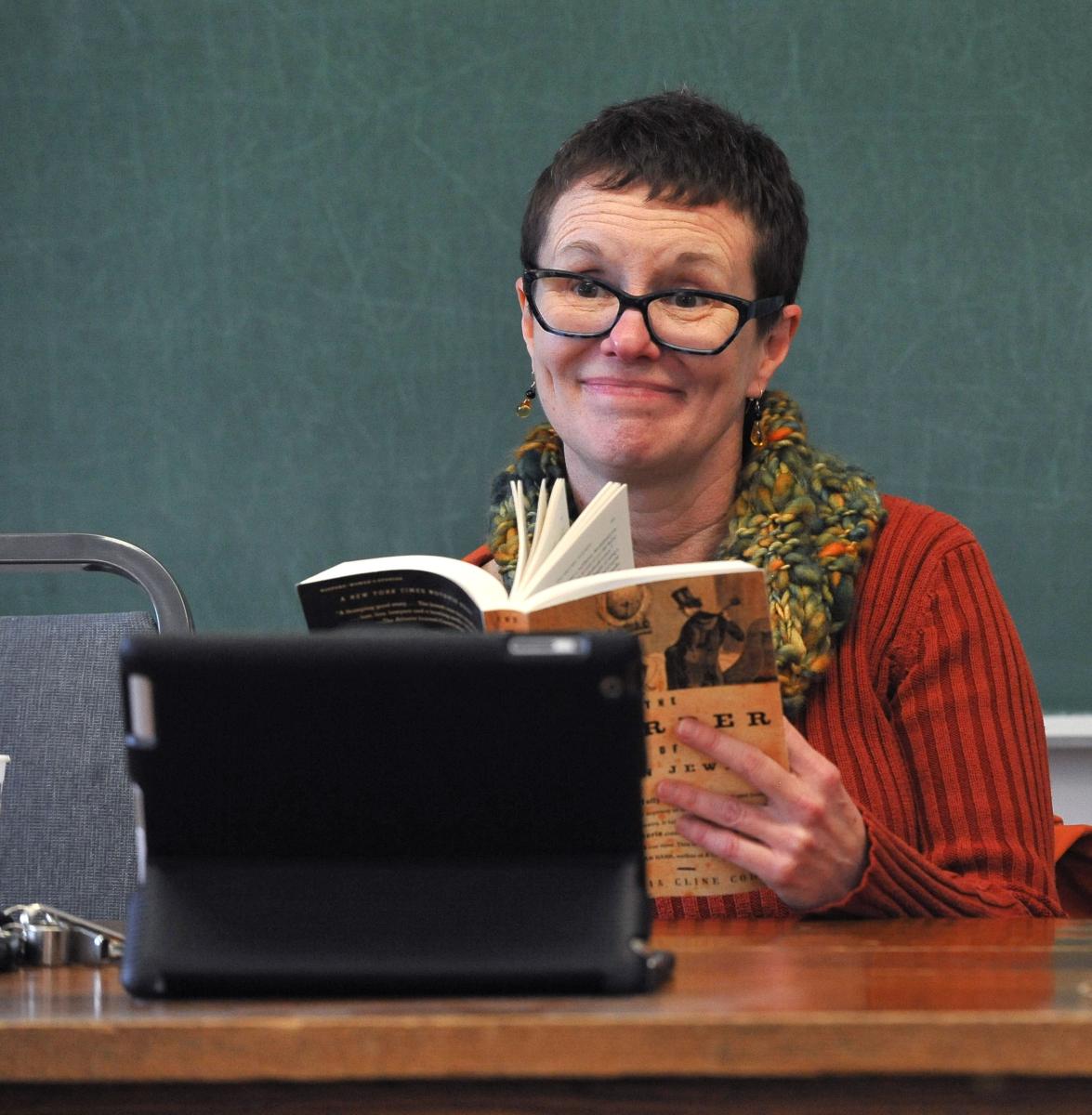 The Association for Documentary Editing chose its President-Elect Kathryn Tomasek to complete the term of Jim Taylor on the Commission. Dr. Tomasek is a Professor of History at Wheaton College in Massachusetts, where she has taught US Women’s History since 1992. Having turned to digital scholarly editing after she was tenured, Dr. Tomasek has been the Principal Investigator on several grant awards, including from the National Endowment for the Humanities, the German Research Foundation, the Andrew W. Mellon Foundation, as well as the NHPRC. She served on the Executive Board of the Text Encoding Initiative (TEI) and chaired its board for three years. Additionally, Dr. Tomasek helped to revive Scholarly Editing, the Annual of the Association for Documentary Editing, and served as co-Editor in Chief with Noelle A. Baker between 2019 and 2024.
The Association for Documentary Editing chose its President-Elect Kathryn Tomasek to complete the term of Jim Taylor on the Commission. Dr. Tomasek is a Professor of History at Wheaton College in Massachusetts, where she has taught US Women’s History since 1992. Having turned to digital scholarly editing after she was tenured, Dr. Tomasek has been the Principal Investigator on several grant awards, including from the National Endowment for the Humanities, the German Research Foundation, the Andrew W. Mellon Foundation, as well as the NHPRC. She served on the Executive Board of the Text Encoding Initiative (TEI) and chaired its board for three years. Additionally, Dr. Tomasek helped to revive Scholarly Editing, the Annual of the Association for Documentary Editing, and served as co-Editor in Chief with Noelle A. Baker between 2019 and 2024.
Funding Opportunities
Important: You really should contact us early on in the application process to discuss your project. We encourage you to provide a draft, which the program director will review and offer advice for revision before the final deadline.
Archival Projects
For projects that ensure online public discovery and use of historical records collections. This program has two application cycles:
First Cycle
- Draft Deadline: February 18, 2025
- Final Deadline: May 7, 2025
Second Cycle
- Draft Deadline: August 15, 2025
- Final Deadline: November 5, 2025
Archives Collaboratives
For projects to plan and develop a working collaborative designed to enhance the capacity of small and diverse organizations with historical records collections.
- Draft Deadline: February 18, 2025
- Final Deadline: May 7, 2025
For projects to publish documentary editions of historical records. This program has two application cycles.
First Cycle
- Draft Deadline: February 18, 2025
- Final Deadline: May 7, 2025
Second Cycle
- Draft Deadline: August 15, 2025
- Final Deadline: November 5, 2025
State Board Programming Grants
For projects that strengthen the nation’s archival network through activities undertaken by state historical records advisory boards.
- Draft/Letter of Inquiry Deadline: March 7, 2025
- Final Deadline: May 7, 2025
Archives Leadership Institute Accepting Applications
Ready to take the next step?
The Archives Leadership Institute may be the right path.
The University of Virginia in Charlottesville, Virginia will host a week-long, in-person experience followed by quarterly virtual gatherings to build the capacity of mid-career archivists as leaders both in their own institutions and in the archives field. Over the course of a year, members of the cohort will undertake a project that they will create and that will explore some aspect of the profession.
ALI@Virginia 2025 will take place from June 8-14, 2025, at the University of Virginia. Cohort members will participate in daylong workshops focusing on strategies for archival leadership, such as ethics of care and mutual aid; responsible stewardship and partnerships; social justice and intercultural relations; and more. The ALI@Virginia experience is grounded in place and landscape, allowing the cohort to explore leadership through the lens of the unique emotional and historical landscape that the University of Virginia offers.
Deadline for applications is January 10, 2025: https://www.archivesleadershipinstitute.org/
News from the Field
Founders Online Keeps Growing
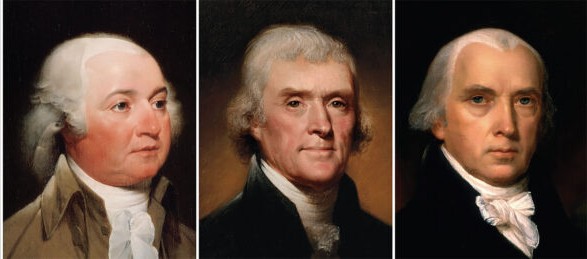
Founders Online is growing and growing. As the documentary editions finish and publish print volumes, the early access documents are replaced by the definitive versions. In October the site added:
- The Papers of John Adams, Volume 21: March 1791–January 1797, 379 documents, from Harvard University Press
- The Papers of Thomas Jefferson–Retirement Series, Volume 19: 16 September 1822 to 30 June 1823, 603 documents, from Princeton University Press
- The Papers of James Madison, Secretary of State Series, Volume 13: 1 November 1806–31 March 1807, 588 documents, from the University of Virginia Press
A total of 1,570 documents!
Check it out at https://founders.archives.gov/about/news
Archaeology in the Southwest
Edgar Lee Hewett (1865-1946) was an American archaeologist and anthropologist whose focus was the Native American communities of New Mexico and the southwestern United States. He is best known for his role in gaining passage of the Antiquities Act (1906), a pioneering piece of legislation for the conservation movement; as the founder and first director of the Museum of New Mexico; and as the first president of the New Mexico Normal School, now New Mexico Highlands University. He trained a new generation of archaeologists, including women, and was integral to the cultural preservation of many New Mexican historical and archaeological sites.
A significant collection of Hewett's manuscripts and photographs are now searchable online thanks to a major grant from the National Historical Publications & Records Commission. The newly digitized collection expands New Mexico History Museum’s mission to offer statewide educational resources to anyone interested in learning about the diverse history of the state and its connections to the rest of the world.
More information about the Hewett Collection can be found at: https://archives.newmexicoculture.org.
Got A/V?
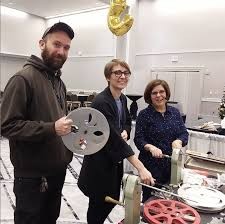
Community Archiving Workshop (https://communityarchiving.org/ ) is a volunteer-organized workshop sponsored by the Association of Moving Image Archivists. The purpose of the Workshop is to support organizations wishing to jumpstart the preservation of their audiovisual collections.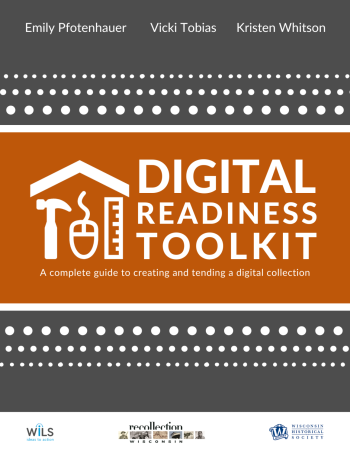
A NHPRC grant to the Community Archiving Workshop went to support a collaborative project with Wisconsin Library Services and Recollection Wisconsin on Addressing Digital Readiness for Audiovisual Collections. This work builds on the Digital Readiness Community of Practice developed by WiLS, Recollection Wisconsin, and the Wisconsin Historical Society by adapting it to include digital audiovisual collections. Learn more at https://communityarchiving.org/aadrac/
Recollections Wisconsin also has a great resource on digital readiness for photos, maps, books, artifacts, oral histories and more. They offer a Digital Readiness Toolkit for free.
Careful Santa…
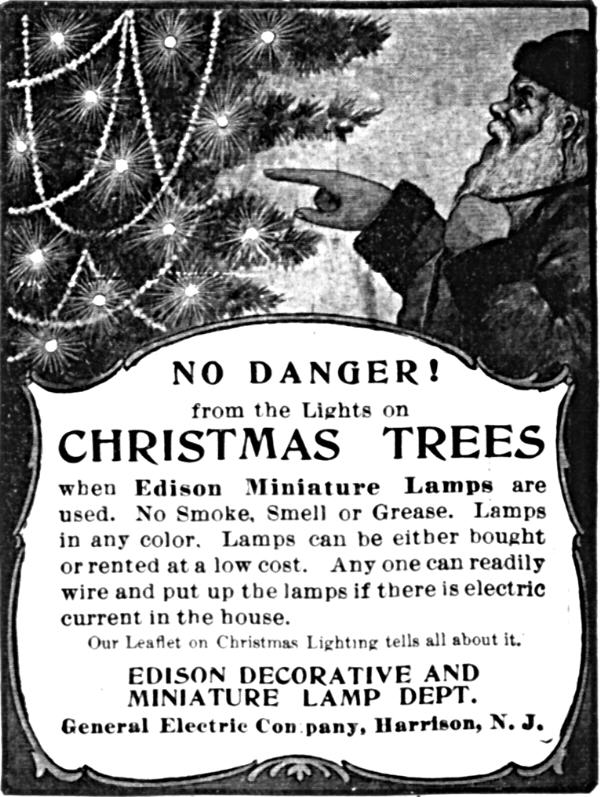 Here's the story of electric lights ended upon the old Christmas tree. A few weeks after he demonstrated his first practical incandescent light in 1879, Thomas Edison decided to string together dozens of the lamps in a live outdoor display in front of his Menlo Park lab for the amazement of passers-by. Two years later, a member of Edison’s marketing staff, Edward H. Johnson, added a twist by placing a string of 80 lights of various colors around a Christmas tree in his home and put the whole display on a rotating stand. President Grover Cleveland first used electric lights on a White House Christmas tree in 1894, three years after electricity had been installed in the mansion.
Here's the story of electric lights ended upon the old Christmas tree. A few weeks after he demonstrated his first practical incandescent light in 1879, Thomas Edison decided to string together dozens of the lamps in a live outdoor display in front of his Menlo Park lab for the amazement of passers-by. Two years later, a member of Edison’s marketing staff, Edward H. Johnson, added a twist by placing a string of 80 lights of various colors around a Christmas tree in his home and put the whole display on a rotating stand. President Grover Cleveland first used electric lights on a White House Christmas tree in 1894, three years after electricity had been installed in the mansion.
The idea of electric lights spread, but it did not replace the relatively new custom of lighting candles on the Christmas tree (that was a Victorian fad). Not until 1902 did General Electric, a company founded by Edison, offered the holiday lights for rent to consumers who could afford such luxury.
By the 1920s that strings of electric Christmas lights really took off across the country, with the introduction of the longer-lasting and cheaper lights we know and love -- until the wires get tangled or a bulb blows.
The NHPRC supports the Thomas Edison Papers, including a digital edition at https://edison.rutgers.edu/
“A Christmas Memory”
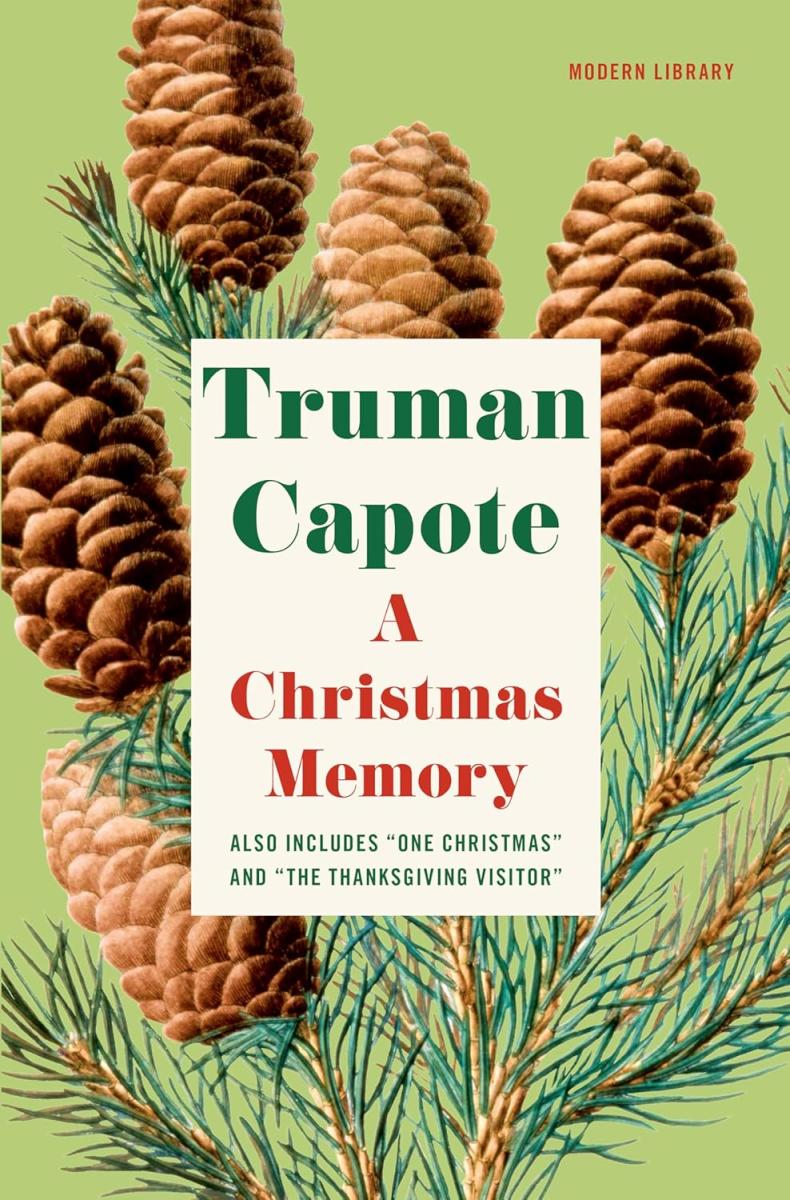 Since its first publication in Mademoiselle magazine in December 1956, Truman Capote’s “A Christmas Memory” has joined the canon of classic American short stories about the holiday. Set in the 1930s, the largely autobiographical story describes the relationship between a seven-year-old boy named Buddy and an elderly female cousin, to whom he refers throughout the story only as "my friend." The story has been adapted as a television special, musical stage production, and an opera, but perhaps the best version is Capote’s own telling.
Since its first publication in Mademoiselle magazine in December 1956, Truman Capote’s “A Christmas Memory” has joined the canon of classic American short stories about the holiday. Set in the 1930s, the largely autobiographical story describes the relationship between a seven-year-old boy named Buddy and an elderly female cousin, to whom he refers throughout the story only as "my friend." The story has been adapted as a television special, musical stage production, and an opera, but perhaps the best version is Capote’s own telling.
Luckily it is in the Minnesota Public Radio archives, recorded in front of a live audience at the 1976 University of North Dakota Writers Conference. The NHPRC supported MPR’s digitization of the event. So sit back, grab a hot cocoa and enjoy “A Christmas Memory” from the MPR Archives .
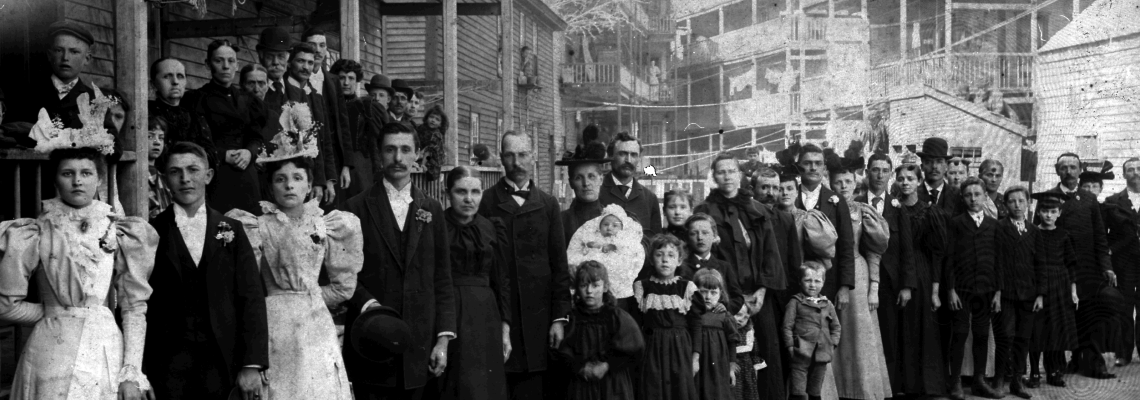
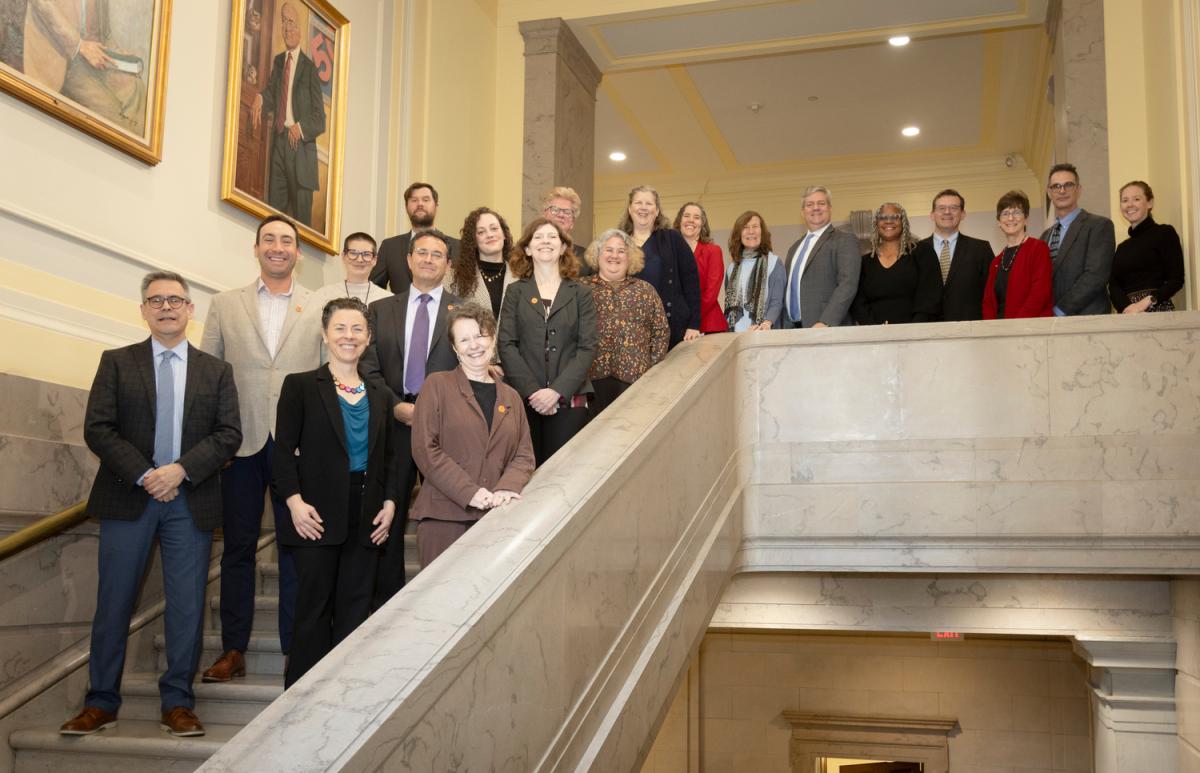

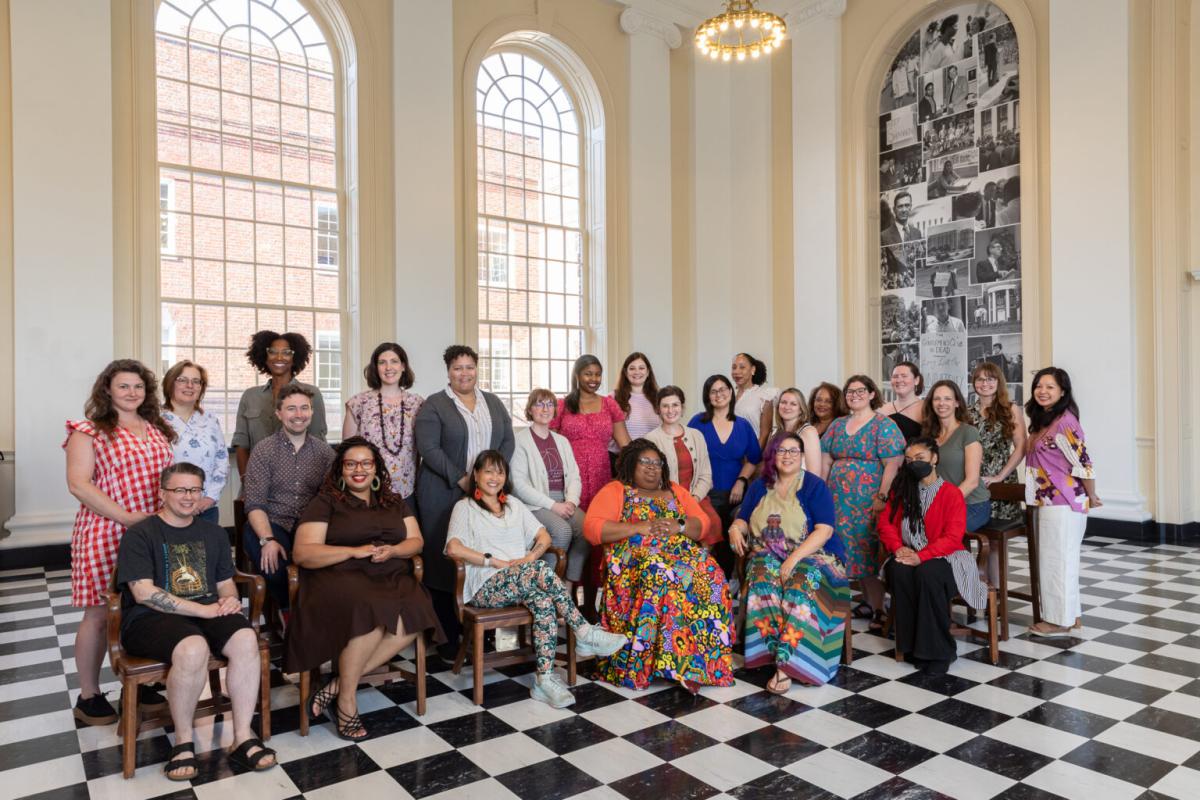

 Subscribe to our mailing list
Subscribe to our mailing list